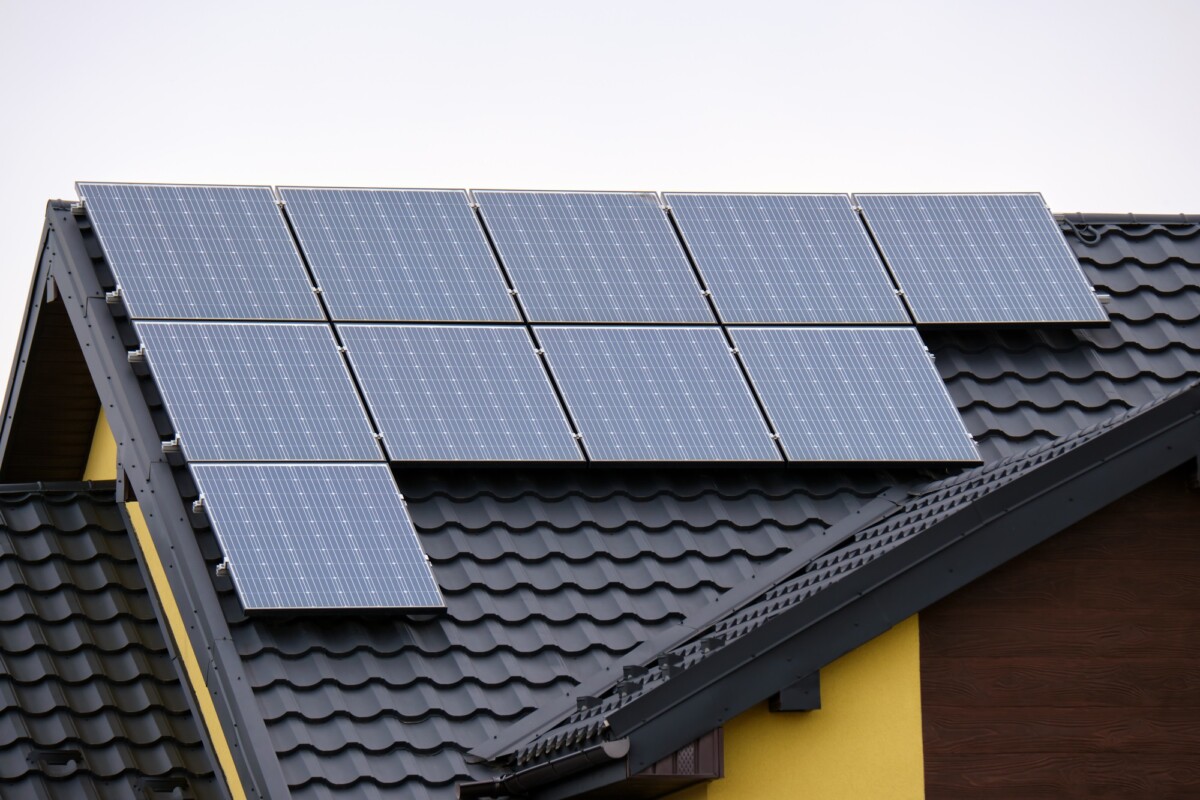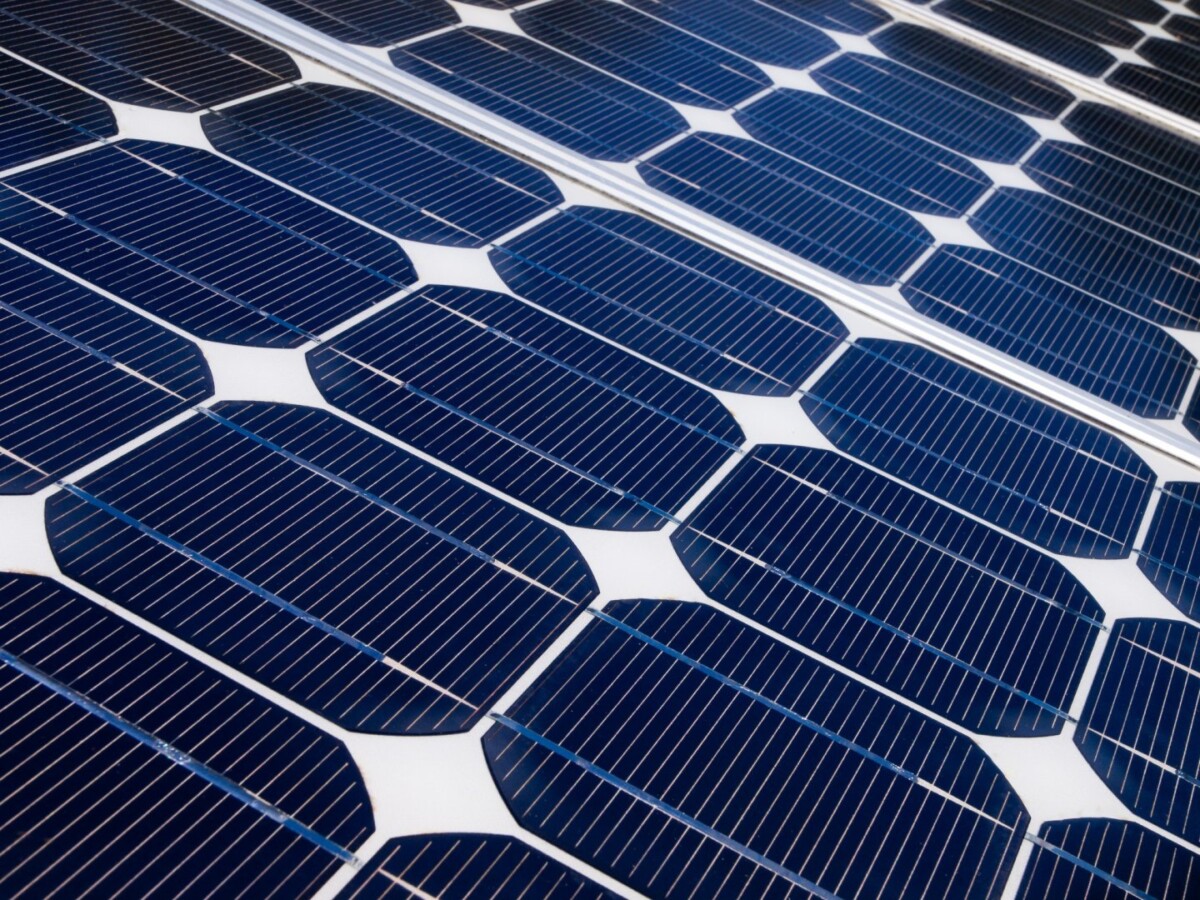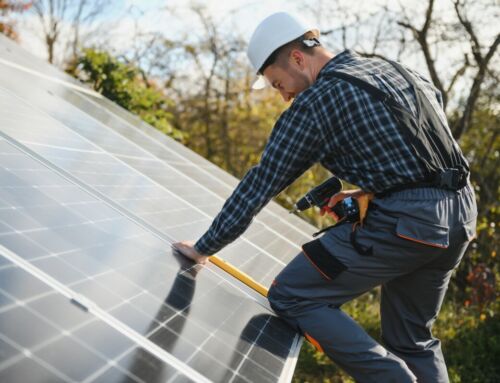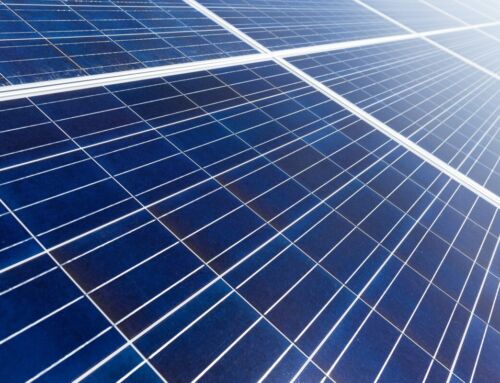Understanding the Basics: Do Solar Panels Generate Heat?
Solar panels are often hailed as a revolutionary technology for harnessing renewable energy, but a common question arises:
Do solar panels generate heat? This question is crucial for homeowners and businesses considering solar energy solutions. Understanding how solar panels interact with heat can help optimize their efficiency and longevity.
Solar panels are designed primarily to convert sunlight into electricity, not heat. However, they do absorb sunlight, which can lead to some heat generation. This heat is not their primary output, but it can influence their efficiency. When solar panels get too hot, their efficiency can decrease, leading to less electricity generation.
How Solar Panels Work
- Photovoltaic Effect: Solar panels use the photovoltaic effect to convert sunlight into electricity. This process involves absorbing photons and releasing electrons, which generates an electric current.
- Heat Absorption: While the primary goal is electricity, some sunlight is inevitably converted into heat, warming the panels slightly.
Impact of Heat on Solar Panel Efficiency
- Efficiency Drop: As temperatures rise, the efficiency of solar panels can drop. For every degree Celsius increase, efficiency can decrease by about 0.5%.
- Cooling Solutions: To mitigate this, some systems incorporate cooling mechanisms or are installed with airflow considerations to maintain optimal temperatures.
In summary, while solar panels do generate some heat, it is not their primary function. Understanding this aspect can help in making informed decisions about solar energy investments.
The Science Behind Solar Panels and Heat Generation
Attention: Have you ever wondered,
Do solar panels generate heat? This question intrigues many as they consider the benefits of solar energy.
Problem: While solar panels are renowned for their ability to convert sunlight into electricity, their impact on heat generation is less understood.
Promise: Let’s delve into the science behind solar panels and heat generation to uncover the truth.
Solar panels, primarily designed to harness sunlight and convert it into electricity, do indeed generate some heat. This occurs because not all sunlight is converted into electricity; a portion is absorbed as heat. However, the heat generated by solar panels is relatively minimal compared to their energy output.
How Solar Panels Work
- Photovoltaic Effect: Solar panels use the photovoltaic effect to convert sunlight into electricity. When sunlight hits the solar cells, it excites electrons, creating an electric current.
- Heat Absorption: During this process, some sunlight is absorbed as heat, which is a natural byproduct of energy conversion.
Impact of Heat on Solar Efficiency
While solar panels do generate heat, it’s important to note that excessive heat can actually reduce their efficiency. High temperatures can increase the resistance in the solar cells, leading to a decrease in energy output. This is why proper installation and ventilation are crucial to maintaining optimal performance.
In conclusion, while solar panels do generate some heat, their primary function remains the efficient conversion of sunlight into electricity. Understanding this balance helps in optimizing their use and maximizing energy savings.

Thinking about solar energy? See how it can lower your bills and elevate your home’s efficiency. Get Your Free Estimate at NewSolar Quotes
How Much Heat Do Solar Panels Actually Produce?
Do Solar Panels Generate Heat? It’s a question many homeowners ponder when considering solar energy. While solar panels are primarily known for converting sunlight into electricity, they do indeed generate some heat. But how much heat are we talking about, and does it impact their efficiency or your home environment? Let’s explore this intriguing aspect of solar technology.
Solar panels work by absorbing sunlight and converting it into electricity. During this process, they also absorb heat, which can raise the temperature of the panels themselves. However, this heat generation is relatively minimal compared to the energy they produce. On average, solar panels can become about 20-30 degrees Fahrenheit warmer than the ambient air temperature.
Factors Influencing Heat Generation
- Material and Design: The type of materials used in solar panels, such as silicon, can affect how much heat they generate. Panels designed with efficient heat dissipation features tend to stay cooler.
- Installation Angle: The angle at which panels are installed can influence how much sunlight and heat they absorb.
Despite generating some heat, solar panels are designed to withstand high temperatures without losing efficiency. In fact, they can even help reduce heat absorption by your roof, keeping your home cooler. So, while solar panels do generate heat, their benefits far outweigh any minor temperature increases.
Exploring the Impact of Solar Panel Heat on Efficiency
Attention: As solar energy continues to gain popularity, many homeowners and businesses are curious about the nuances of solar panel technology.
Problem: One common question is, “Do solar panels generate heat, and how does this affect their efficiency?”
Promise: Let’s delve into this topic to uncover how heat impacts solar panel performance and what it means for your energy savings.
Solar panels do indeed generate heat, but their primary function is to convert sunlight into electricity, not heat. When sunlight hits a solar panel, it excites electrons in the photovoltaic cells, creating an electric current. However, not all sunlight is converted into electricity; some of it is absorbed as heat. This heat can influence the efficiency of solar panels, as higher temperatures can reduce their ability to generate electricity effectively.
How Heat Affects Solar Panel Efficiency
- Temperature Coefficient: Solar panels have a temperature coefficient that indicates how much their efficiency decreases with rising temperatures. Typically, for every degree Celsius increase, efficiency drops by about 0.5%.
- Material and Design: The materials and design of solar panels can mitigate heat effects. For instance, panels with better heat dissipation properties can maintain efficiency even in hotter climates.
Mitigating Heat Impact
- Proper Installation: Ensuring proper installation with adequate airflow can help reduce heat buildup.
- Advanced Technologies: Some modern panels incorporate technologies like bifacial designs or cooling systems to enhance performance in high temperatures.
Understanding the relationship between heat and solar panel efficiency is crucial for maximizing energy output. By considering factors like installation techniques and advanced panel technologies, you can ensure that your solar investment remains efficient, even under the sun’s intense heat.
Can Solar Panels Overheat? What You Need to Know
Attention: Solar panels are a popular choice for sustainable energy, but many wonder,
do solar panels generate heat?
Problem: While they are designed to harness sunlight, there’s a concern about whether they can overheat, affecting efficiency and safety.
Promise: Let’s explore how solar panels work and what you need to know about their heat generation.
Solar panels do indeed generate heat, but not in the way you might think. They convert sunlight into electricity, and during this process, some heat is produced. However, this heat is generally not enough to cause overheating. In fact, solar panels are designed to withstand high temperatures and continue functioning efficiently.
How Solar Panels Manage Heat
- Material Design: Solar panels are made from materials like silicon that can handle high temperatures without degrading.
- Installation Techniques: Proper installation ensures there’s adequate airflow around the panels, helping to dissipate heat.
Potential Risks and Mitigations
While the risk of overheating is low, it’s not impossible. Factors such as poor installation or extreme environmental conditions can contribute to heat buildup. To mitigate these risks:
- Regular Maintenance: Ensure panels are clean and free from debris.
- Professional Installation: Always opt for certified installers who follow best practices.
In conclusion, while solar panels do generate some heat, they are engineered to manage it effectively. With proper installation and maintenance, the risk of overheating is minimal, allowing you to enjoy the benefits of solar energy worry-free.
Innovative Cooling Solutions for Solar Panels
Do Solar Panels Generate Heat? It’s a question that often sparks curiosity. As solar panels harness the sun’s energy, they indeed absorb heat, which can affect their efficiency. But don’t worry! Innovative cooling solutions are here to ensure your solar panels perform at their best, even on the hottest days.
Solar panels are designed to convert sunlight into electricity, but they also absorb heat, which can reduce their efficiency.
Why does this happen? When solar panels get too hot, their ability to convert sunlight into electricity decreases. This is where innovative cooling solutions come into play, helping to maintain optimal performance.
Cooling Techniques for Solar Panels
- Passive Cooling: This involves using materials and designs that naturally dissipate heat, such as reflective coatings or heat sinks.
- Active Cooling: Systems like water or air cooling actively remove heat from the panels, ensuring they stay within an optimal temperature range.
By implementing these cooling solutions, you can enhance the efficiency of your solar panels, ensuring they generate maximum power even under intense sunlight. So, while solar panels do generate heat, innovative cooling solutions can effectively manage it, keeping your energy production steady and reliable.
Environmental Benefits: Heat Generation and Solar Energy
Attention: Have you ever wondered,
Do solar panels generate heat? This question often arises when considering the environmental impact of solar energy.
Problem: While solar panels are renowned for their ability to convert sunlight into electricity, many people are curious about their role in heat generation and its environmental implications.
Promise: Understanding how solar panels interact with heat can illuminate their broader environmental benefits, making them an even more attractive option for sustainable energy.
How Solar Panels Interact with Heat
Solar panels primarily function by converting sunlight into electricity, not heat. However, they do absorb some heat, which can slightly increase the temperature of their surroundings. This heat absorption is minimal compared to the energy they produce, ensuring that their environmental impact remains positive.
- Heat Absorption: Solar panels absorb sunlight, which can cause a slight temperature increase.
- Energy Efficiency: Despite heat absorption, panels efficiently convert sunlight into usable energy, minimizing waste.
Environmental Benefits of Heat Generation
While the heat generated by solar panels is minimal, it contributes to several environmental benefits:
- Reduced Urban Heat: By absorbing sunlight, solar panels can help reduce the urban heat island effect, cooling cities.
- Sustainable Energy: The primary benefit remains the clean energy produced, reducing reliance on fossil fuels and lowering carbon emissions.
In conclusion, while solar panels do generate some heat, their primary contribution is in producing clean, renewable energy. This makes them a vital component in the fight against climate change, offering both environmental and economic benefits.
How NewSolarQuotes Can Help You Harness Solar Energy Efficiently
Solar panels do indeed generate heat, but this is not their primary function. Their main role is to convert sunlight into electricity. However, understanding how heat generation impacts efficiency is crucial. Excessive heat can reduce the efficiency of solar panels, but with proper installation and technology, this can be mitigated.
Understanding Heat Generation in Solar Panels
- Photovoltaic Process: Solar panels absorb sunlight and convert it into electricity through the photovoltaic effect. During this process, some heat is inevitably produced.
- Impact on Efficiency: While heat is a byproduct, it can slightly reduce the efficiency of solar panels. However, modern panels are designed to minimize this effect.
How NewSolarQuotes Optimizes Solar Panel Efficiency
- Expert Consultation: Our team offers expert advice on selecting and installing solar panels that best suit your needs, ensuring optimal performance.
- Innovative Solutions: We provide access to the latest technologies that enhance efficiency and reduce heat-related losses.
By partnering with NewSolarQuotes, you can confidently harness solar energy, knowing that you’re equipped with the best tools and knowledge to maximize your investment.
Switch to solar and start saving now! Don’t miss out on a cleaner, cost-effective energy solution. Schedule Your Free Consultation at NewSolar Quotes
Discover more ways to save with solar! Visit New Solar Quote and see the potential for your home. 





